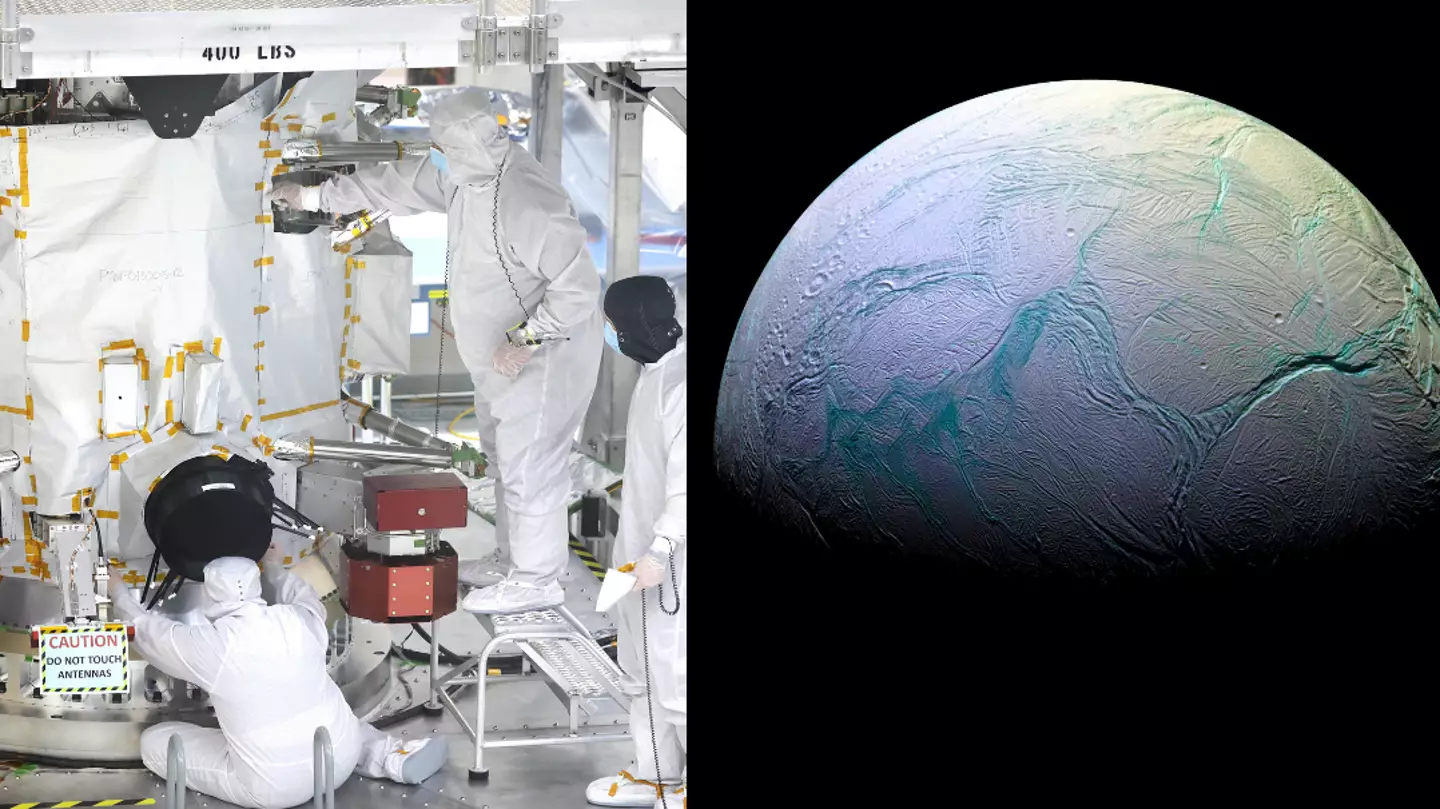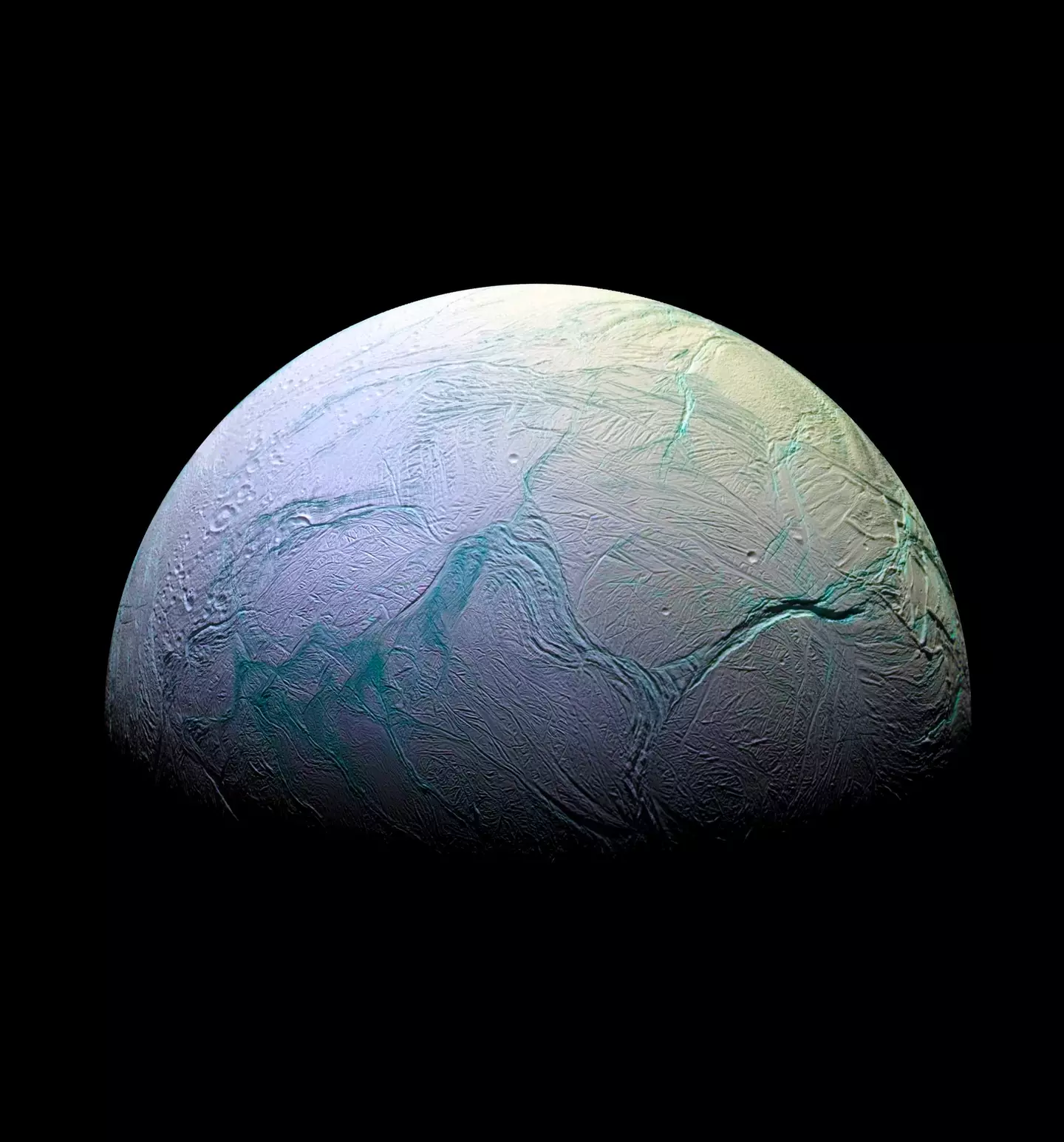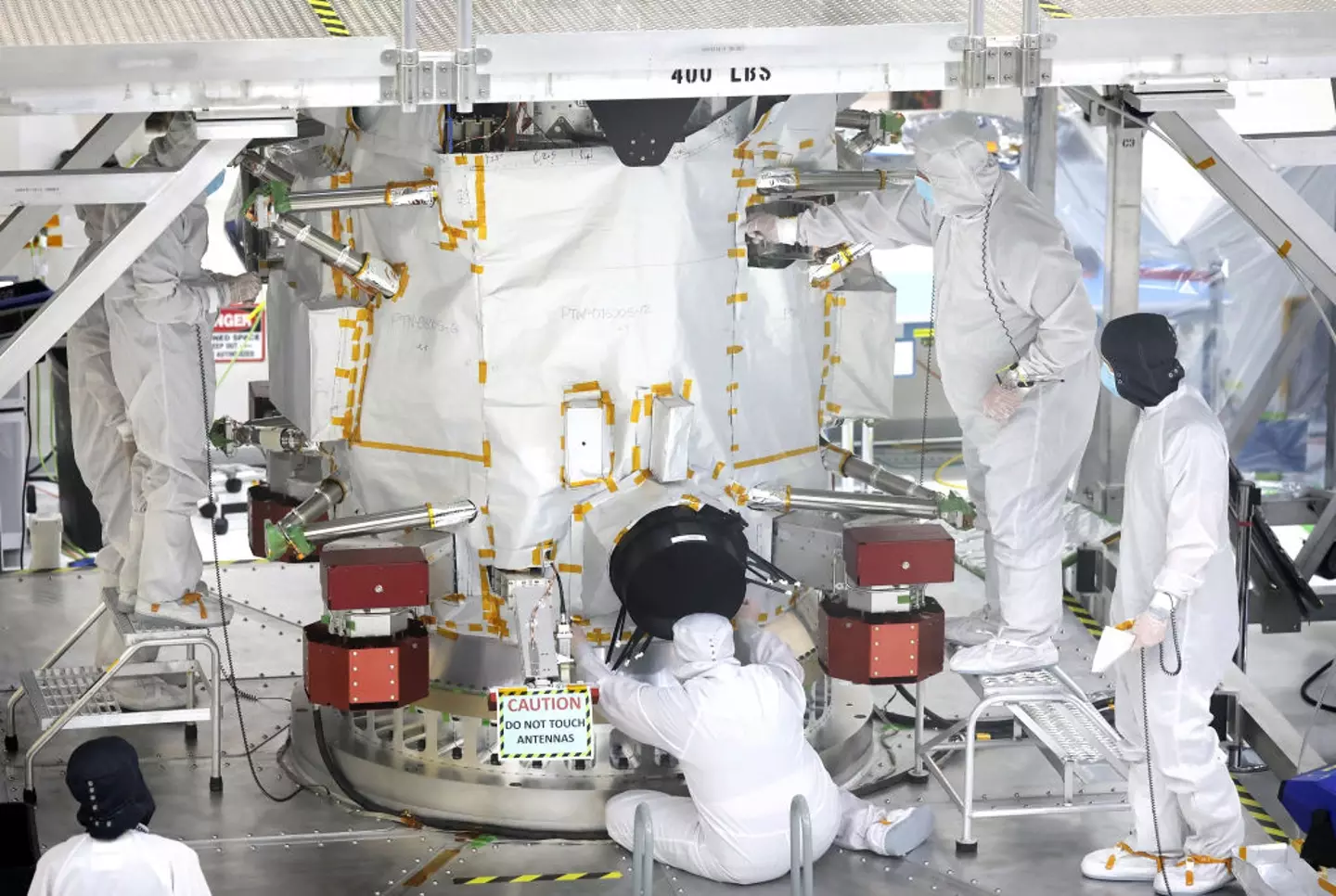
Long story short, we're obsessed with the idea of alien life. It is an obsession that is rooted in the human psyche, going all the way back to the 1902 French film A Trip to the Moon.
And we could finally have answers to the big question of whether other life forms exist thanks to one nifty piece of equipment being used by NASA (National Aeronautics and Space Administration).
The American space agency could be about to use a brand new piece of equipment to finally detect extraterrestrial life that's closer to home than some might be thinking.
No, we're not going all David Bowie and talking about life on Mars. Instead, the focus is on Jupiter and Saturn.
Advert
And in particular, two icy moons, one orbiting each planet.
On each moon, ice-encrusted oceans have been pinpointed by leading scientists hunting for extraterrestrial life.
And now, a new investigation by the University of Washington in Seattle and the Freie Universität Berlin has hinted that individual ice grains from the moons could be analysed for even the smallest biological traces under the new NASA equipment.
The moons in question are Saturn's Enceladus and Jupiter's Europa.

Advert
The equipment, on board NASA's Europa Clipper space probe, is the SUrface Dust Analyzer (SUDA).
The Europa Clipper will launch in October this year with the two moons on its horizon.
Lead author Fabian Klenner, a UW postdoctoral researcher in Earth and space sciences, said: "For the first time we have shown that even a tiny fraction of cellular material could be identified by a mass spectrometer onboard a spacecraft.
"Our results give us more confidence that using upcoming instruments, we will be able to detect lifeforms similar to those on Earth, which we increasingly believe could be present on ocean-bearing moons."
The study was published this month in the Science Advances journal.
Advert
It comes seven years after a former NASA mission found cracks near the south pole of Enceladus, with gas and ice grains coming out of these cracks.

Europa Clipper is set to analyse the icy particles.
Using sphingopyxis alaskensis, a common bacterium in waters off Alaska, to test the probe, Klenner added: "They are extremely small, so they are in theory capable of fitting into ice grains that are emitted from an ocean world like Enceladus or Europa."
The hope is for Europa Clipper and SUDA to now detect bacteria within the ice in what would be a monumental moment in space exploration.
Topics: NASA, Space, Technology, US News, World News, Aliens